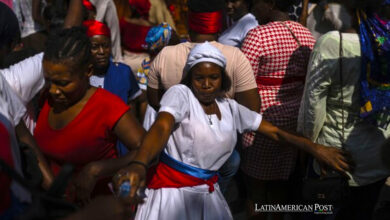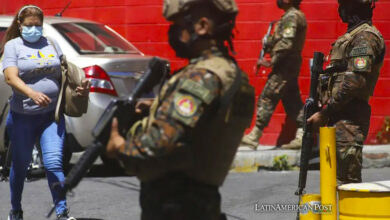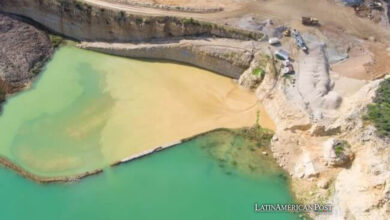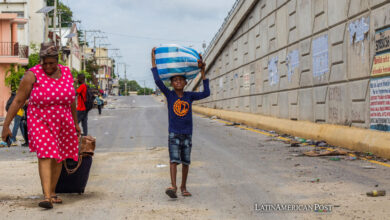Ecuador Declares Emergency in Coastal Provinces Amid Violence
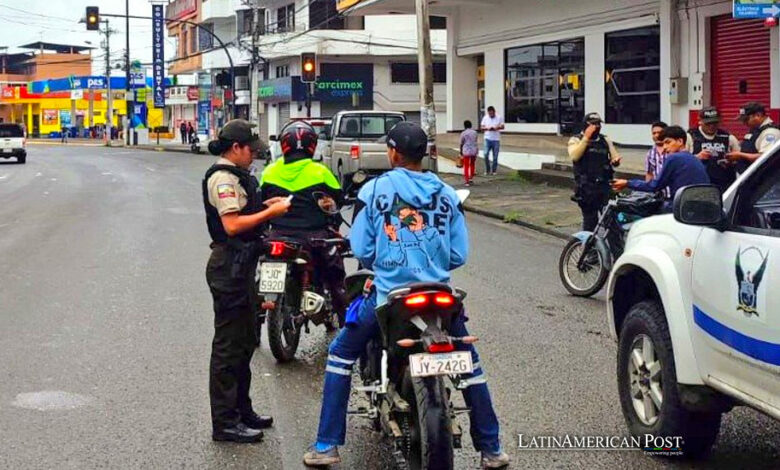
Ecuador’s President Daniel Noboa has announced a 60-day state of emergency in five coastal provinces, escalating efforts to combat a surge in violence linked to organized crime and drug trafficking.
In a decisive move to address the escalating violence on Ecuador’s coast, President Daniel Noboa has declared a state of emergency across five coastal provinces: El Oro, Guayas, Los Rios, Manabi, and Santa Elena. This declaration, marking President Noboa’s second security-based emergency since taking office in November, aims to stabilize a region plagued by increasing violent deaths and criminal activities.
President Noboa Faces Uphill Battle
Since his election, President Noboa has faced the formidable challenge of reversing Ecuador’s deteriorating security landscape. The recent surge in violence has been particularly severe in the coastal areas, traditionally known as vibrant economic and cultural hubs but now overshadowed by the specter of organized crime.
The state of emergency, set to last 60 days, empowers the police and armed forces to conduct tactical combat operations against organized armed groups. This heightened response comes in the wake of several high-profile violent incidents, including the dramatic invasion of a television station and the mass hostage-taking of correctional officers earlier in January, incidents the government attributes to drug trafficking gangs.
The decision to deploy military and police forces underscores the severity of the threat and the government’s commitment to restoring order. “The necessity of executing tactical combat operations is clear and urgent,” stated the official decree. This approach reflects a broader strategy to use force and increased security measures to dismantle criminal networks entrenched in these provinces.
Ecuador’s struggle with organized crime is a microcosm of a more significant battle being waged across Latin America, where countries are grappling with the effects of international drug trafficking. These criminal enterprises destabilize regions, corrode social structures, and hinder economic development. The violence associated with these gangs has led to loss of life, mass displacement of communities, and significant disruptions to local economies.
Socioeconomic Implications of the Crisis
In Ecuador, the coastal provinces under emergency rule are critical to the country’s economy for their agricultural and industrial outputs and as gateways for international trade through their ports. Therefore, The security crisis has social and economic implications, threatening the livelihoods of millions who depend on these regions for their income.
President Noboa’s administration has highlighted that restoring peace and security is paramount for protecting citizens and ensuring these areas’ economic vitality. The government’s approach involves a combination of increased patrols, checkpoints, and community engagement initiatives designed to regain public trust and dismantle crime networks.
However, critics argue that while emergency measures are necessary, they must be part of a larger, more comprehensive strategy that addresses the root causes of crime, such as poverty, unemployment, and corruption. These underlying issues often drive individuals towards criminal activities, suggesting that long-term stability will require more than an aggressive approach.
Furthermore, human rights organizations have raised concerns about the potential for abuses during the state of emergency, urging the government to ensure that the increased military presence does not lead to violations of civilian rights. They argue that transparency and accountability are crucial in maintaining public support and ensuring that the fight against crime does not erode democratic freedoms.
Regional and International Impact
Ecuador’s security measures also have a significant regional impact, with neighboring countries watching closely. The effectiveness of these emergency measures could influence broader regional strategies against organized crime, especially in trafficking routes that cross multiple national borders.
As the 60-day period progresses, all eyes will be on Ecuador to see how effectively President Noboa’s government can balance the immediate needs of security with the long-term demands of justice and social stability. The outcome will not only determine the future of the affected provinces but also set a precedent for how Latin America can confront the pervasive challenge of organized crime and violence.
Also read: Ecuador Launches Unit to Investigate Finances of Organized Crime
With international cooperation and a balanced approach, Ecuador aims to reclaim its coastal regions from the grasp of organized crime, setting a path toward recovery and long-term peace. This crisis presents a critical test for President Noboa’s leadership and his promise to restore safety and confidence among his citizens.

